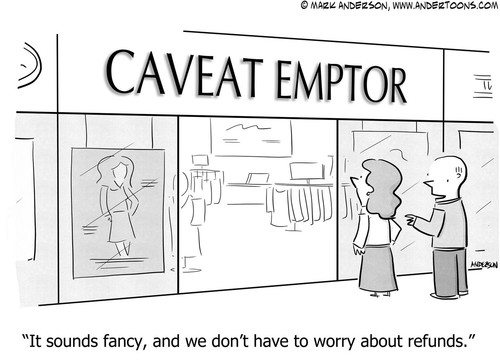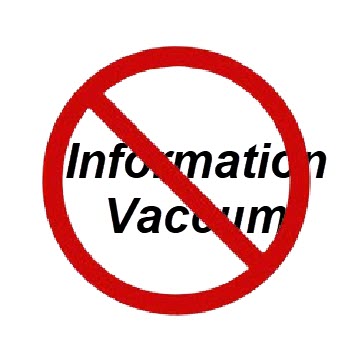 As the uncertainty related to the Coronavirus accelerates, we are beginning to see a certain amount of what appears to be panic among management of businesses affected by the Covid-19.
As the uncertainty related to the Coronavirus accelerates, we are beginning to see a certain amount of what appears to be panic among management of businesses affected by the Covid-19.
A newspaper report in Miami, quoting leaked emails from Norwegian Cruise Line stated in the wake of the epidemic, a Norwegian Cruise Line (NCL) employee in South Florida says some managers have asked sales staff to lie to customers about COVID-19 to protect the company’s bookings.
PUT ON A PROGRAM …
The emails not only suggested specific lies to tell prospective passengers, but also made it clear that if the salespeople did not meet their sales quotas, the would be “put on a program” and fired.
 A United flight from Colorado to New Jersey, made an unscheduled stop shortly after takeoff because a passenger sneezed. Apparently, a number of passengers panicked over the sneeze and three people left the aircraft. The passenger who sneezed, after having their temperature taken, was allowed to continue on the flight.
A United flight from Colorado to New Jersey, made an unscheduled stop shortly after takeoff because a passenger sneezed. Apparently, a number of passengers panicked over the sneeze and three people left the aircraft. The passenger who sneezed, after having their temperature taken, was allowed to continue on the flight.
And speaking of United Airlines, based on a new schedule change policy the airline won’t let you refund your ticket unless the airline changes your flight schedule against your will by at least 25 hours. The previous policy was two hours. United has now said they will evaluate this on a case by case basis.
 It’s outrageous to think that the airline could cancel your flight in advance, re-book you on a flight 24 hours later, and you still wouldn’t be entitled to a refund.
It’s outrageous to think that the airline could cancel your flight in advance, re-book you on a flight 24 hours later, and you still wouldn’t be entitled to a refund.
While it’s true that cruise ship bookings are being cancelled at a record rate and airline travel is down by as much as 20%. Airlines are cutting flights to compensate, only United, so far has imposed a draconian refund policy.
REACTING TO FEAR …
The reaction that we are seeing from these incidents is a reaction to fear.
 Fear of lost revenue and profits; fear of exposure to a serious illness and just a generalized fear of not really knowing what’s really going on.
Fear of lost revenue and profits; fear of exposure to a serious illness and just a generalized fear of not really knowing what’s really going on.
But when we face fear, whether personally or of the more existential variety, the natural inclination for any of us is to be paralyzed or to react out of our fear. But reacting from fear or taking no action is often an ill-advised reaction.
If knowledge is power, then people need to be empowered by information. As the CEO of the executive search firm, Korn/Ferry states:
“I’ve always compared the leader’s role to that of a shepherd: occasionally in front, sometimes along side, and often behind. These days, however, the leader must be in front.”
SHARING INFORMATION IS …
 Sharing information is critical, but far less than half the battle.
Sharing information is critical, but far less than half the battle.
Of course, people need to know about strategy, speed, direction, and results.
But it can’t stop there. Language is an art to express ideas-but the messenger is the message.
“Actions speak louder than words” is true for everyone-and twice as true for leaders. It’s not just what you say, but how you say it.
Verbally and nonverbally, the way in which communication occurs-humbly, passionately, confidently-has more impact than merely the words chosen.
LEADERSHIP LIVES HERE …
Communication is where leadership lives and breathes. It informs, persuades, guides, assures, and inspires. Here’s how:
- If leaders want to hear the truth, they must welcome it. That won’t happen, though, unless people feel it’s safe to say what they really think without fear of retribution and not just what they think leadership wants to hear.
- The information highway. Communication is far more than a transmission of information. Communication needs to be the “information highway,” flowing freely in both directions and in every circumstance. Important in good times and crucial in challenging ones.
 More assurance, less authority. Communication is connecting and engaging with others. Messages must be delivered frequently and consistently, with candor and honesty. That means speaking with more assurance than authority and being concerned with tone as well as content. Passionate, confident words motivate. Although information is crucial, if the message lacks authenticity, the team’s follow-through may be lackluster or even lacking.
More assurance, less authority. Communication is connecting and engaging with others. Messages must be delivered frequently and consistently, with candor and honesty. That means speaking with more assurance than authority and being concerned with tone as well as content. Passionate, confident words motivate. Although information is crucial, if the message lacks authenticity, the team’s follow-through may be lackluster or even lacking.
- People would rather know the truth. In bull markets, people look to the leader for validation. In bear markets, they look to the leader for assurance. When faced with a challenge, people would rather know the truth than dwell in the worst-case scenarios residing in their imaginations. Leaders who don’t communicate will become the subject of others’ communication and not in a flattering way.
 Beware the vacuum. If not addressed, a lack of information can lead to hazardous uncertainty. People will spend their time speculating, because there’s an information vacuum that needs to be filled. Uncertainty breeds conjecture, escalating fear and causing chaos. No matter how serious the news, people prefer certainty. To predict tomorrow, people have to accurately perceive the reality of today. Then you can plot a course for tomorrow.
Beware the vacuum. If not addressed, a lack of information can lead to hazardous uncertainty. People will spend their time speculating, because there’s an information vacuum that needs to be filled. Uncertainty breeds conjecture, escalating fear and causing chaos. No matter how serious the news, people prefer certainty. To predict tomorrow, people have to accurately perceive the reality of today. Then you can plot a course for tomorrow.
- No shortcuts allowed. Communication takes time-and lots of it. The temptation, therefore, is to take shortcuts such as assuming that people already know certain information or else glossing over a message from an employee or passing it along to someone else. Take time to acknowledge messages-and the messengers. Show others that they matter.
Remember, for a leader in uncertain times and, in particular, these times, it’s not simply about staying on message. The leader is the message.
Revitalization Partners specializes in improving the operational and financial results of companies and providing hands-on expertise in virtually every circumstance, with a focus on small and mid-market organizations. Whether your requirement is Interim Management, a Business Assessment, Revitalization and Reengineering or Receivership/Bankruptcy Support, we focus on giving you the best resolution in the fastest time with the highest possible return.



